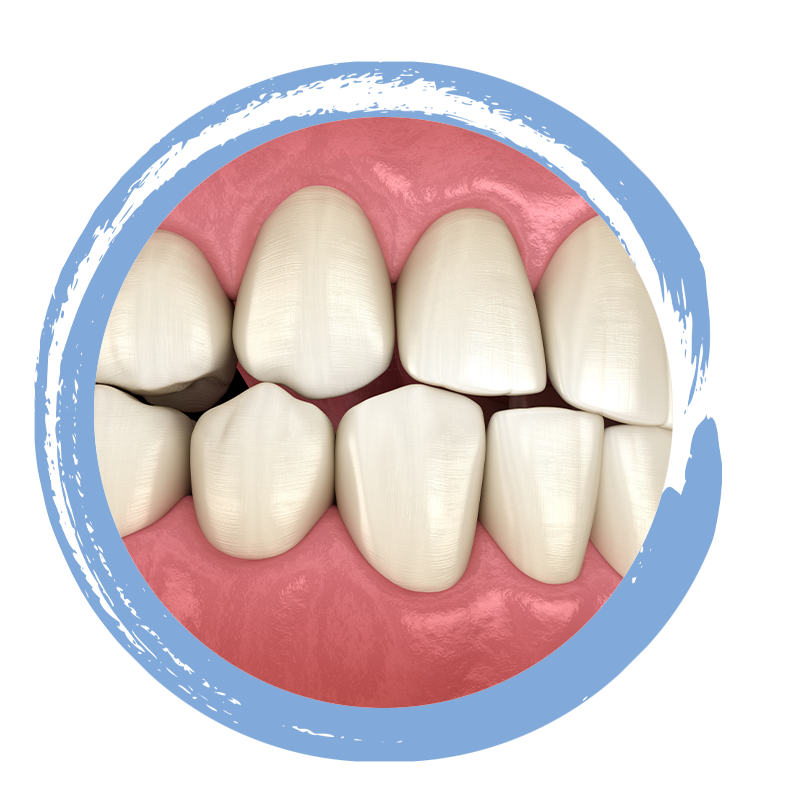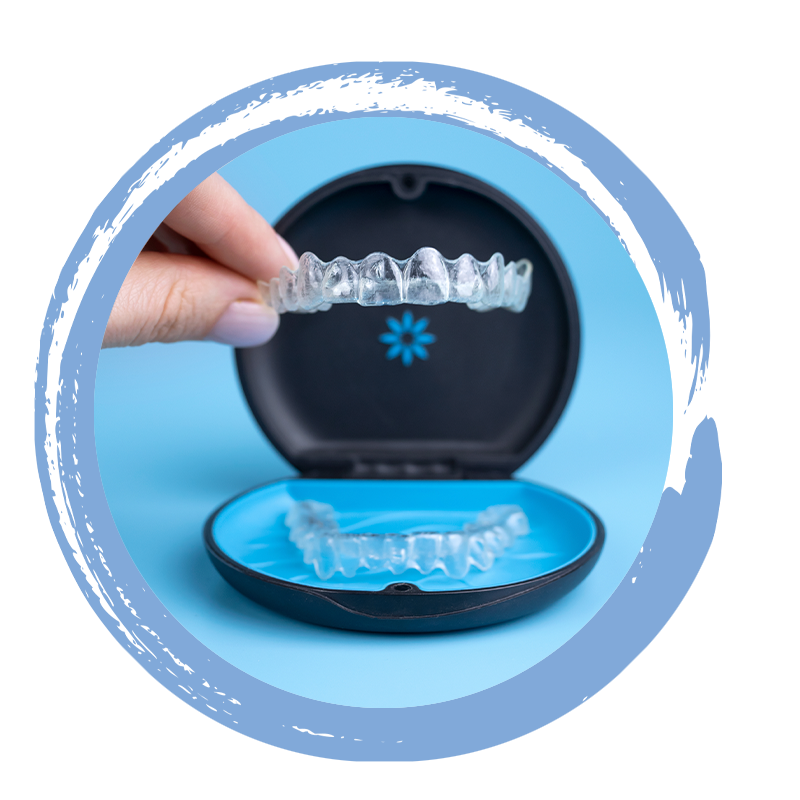Relieve Your Jaw Pain with TMJ Treatment
Temporomandibular joint dysfunction (TMD) is a condition that affects the muscles of the jaw, temporomandibular joints (TMJ), and the nerves associated with chronic facial pain. Individuals with TMD may experience discomfort and tenderness in the jaw and a clicking or popping sensation in the joint while speaking or chewing. These symptoms can significantly impact the quality of life for those affected, making even simple tasks like talking strenuous.
At Champagne Smiles, we provide a range of TMJ treatments to alleviate and resolve jaw pain. Addressing TMJ symptoms is crucial as it can lead to extensive tooth damage, persistent headaches, muscle pain, and other long-term complications. Common indicators of TMJ include teeth grinding, misalignment of the teeth, and a locked jaw. Our dedicated team in Morganville, NJ, is ready to assist you in managing your TMJ symptoms.
Our TMJ Treatments

Occlusal Adjustments
An occlusal adjustment is a dental technique that involves reshaping the biting surface of teeth to eliminate interferences that cause bite misalignment. This procedure, also a TMJ treatment, includes grinding and shaping specific tooth surfaces to enhance overall function. For individuals seeking to correct malocclusion, occlusal adjustment is an excellent solution when teeth do not align properly.

Orthodontics
Orthodontic treatments offer various methods to alleviate TMJ symptoms. Whether through Invisalign® , or a personalized night guard, orthodontics effectively addresses misaligned teeth over time. With the appropriate treatments, orthodontics can effectively align your bite and resolve any discomfort or issues caused by TMJ.

Mouthguard/Splint Therapy

Botox
Botox injections may provide a valuable treatment option for these symptoms. By strategically targeting the muscles surrounding the TMJ, Botox can induce relaxation, thereby reducing tension and alleviating associated discomfort. While not a cure for TMJ itself, Botox therapy can significantly improve a patient’s quality of life by managing symptoms and promoting a more comfortable jaw function.

More Than Aesthetics
A pain-free and comfortable smile is a cosmetic enhancement and a fundamental aspect of overall well-being. At Champagne Smiles, we recognize the significance of a pain-free dental experience and understand how discomfort can impact daily life. Our specialized TMJ treatment plans are designed to enhance your smile and address underlying issues causing jaw pain and discomfort.
By opting for our tailored TMJ treatments, patients can experience improved chewing function and alleviation of jaw pain, contributing to an overall better quality of life. We understand that investing in your dental health is essential, and to support you in treatment, we offer flexible financing options. Your smile is an investment in your health and happiness, and we are here to ensure it brings you lasting comfort and confidence.


